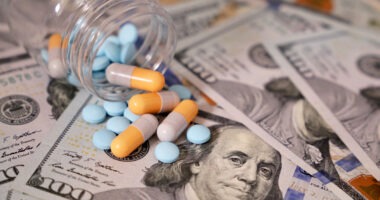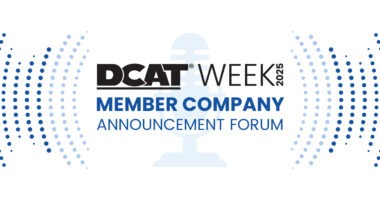Tariffs & Pharmaceuticals: US Government Takes the Next Step
The US Secretary of Commerce has initiated an investigation to determine the effects on US national security of imports of pharmaceuticals, including finished drug products, APIs, and key starting materials, potentially paving the way for pharmaceutical industry-specific tariffs.
By Patricia Van Arnum, Editorial Director, DCAT, pvanarnum@dcat.org
US government evaluating US imports of pharmaceuticals
Earlier this month (April 1, 2025), the US Department of Commerce initiated an investigation to determine the effects on US national security of imports of pharmaceuticals and pharmaceutical ingredients. This includes both finished generic and non-generic drug products, medical countermeasures, critical inputs, such as active pharmaceutical ingredients (APIs) and key starting materials, and derivative products of those items.
The investigation was initiated under Section 232 of the Trade Expansion Act of 1962, as amended, which allows the President to impose import restrictions based on an investigation and affirmative determination by the US Department of Commerce that certain imports threaten to impair US national security. The Bureau of Industry and Security at the Commerce Department conducts the investigation. In general, a Section 232 investigation considers the following (1) existing domestic production of the product; (2) future capacity needs; (3) manpower, raw materials, production equipment, facilities, and other supplies needed to meet projected national defense requirements; (4) growth requirements, including the investment, exploration, and development to meet them; and (5) any other relevant factors.
A Section 232 investigation does not necessarily result in the imposition of tariffs, but it provides the President the findings of the investigation to determine what, if any, measures would be taken with respect to trade policy in the interest of national security. The President may decide to impose tariffs or quotas to offset the adverse effect, without any limits on their duration, or take other action and may exclude specific products or countries. After a determination, the President must implement the action within 15 days, and submit a written statement to Congress explaining the action or inaction within 30 days.
The Section 232 investigations is being used by the current Administration to evaluate tariffs for other industries. Earlier this week (April 15, 2025), President Trump signed an Executive Order launching an US Department of Commerce investigation into the national security risks posed by US reliance on imported processed critical minerals and their derivative products, with consideration for the imposition of tariffs depending on the findings of the Commerce Department investigation.
For pharmaceuticals, the US Commerce Department provided public notice in the Federal Register of its Section 232 investigation into pharmaceuticals this week (April16, 2025) and is requesting public comment by May 7, 2025. The notice identifies several issues on which the US Department of Commerce is especially interested in obtaining the public’s views as outlined below:
- US pharmaceutical demand. The current and projected demand for pharmaceuticals and pharmaceutical ingredients in the United States;
- US domestic pharmaceutical production. The extent to which domestic production of pharmaceuticals and pharmaceutical ingredients can meet domestic demand;
- Foreign pharmaceutical supply chains. The role of foreign supply chains, particularly of major exporters, in meeting US demand for pharmaceuticals and pharmaceutical ingredients;
- US pharmaceutical imports. The concentration of US imports of pharmaceuticals and pharmaceutical ingredients from a small number of suppliers and the associated risks;
- Impact of foreign trade policy on pharmaceuticals. The impact of foreign government subsidies and trade practices on United States pharmaceuticals industry competitiveness;
- Economic impact of foreign trade practices on pharmaceuticals. The economic impact of artificially suppressed prices of pharmaceuticals and pharmaceutical ingredients due to foreign unfair trade practices and state-sponsored overproduction;
- Export restrictions on pharmaceuticals. The potential for export restrictions by foreign nations, including the ability of foreign nations to exercise control over pharmaceuticals supplies;
- Feasibility on increasing US domestic manufacturing capacity. The feasibility of increasing domestic capacity for pharmaceuticals and pharmaceutical ingredients to reduce import reliance;
- Impact of trade policy on US domestic production capacity. The impact of current trade policies on domestic production of pharmaceuticals and pharmaceutical ingredients, and whether additional measures, including tariffs or quotas, are necessary to protect national security; and
- Other factors. Any other relevant factors.
Industry reaction
The Association for Accessible Medicines (AAM), which represents developers and producers of generic drugs and biosimilars, raised concerns over the US Department of Commerce ‘s Section 232 investigation into possible tariffs and other trade remedies although it supports measures to increase US-based pharmaceutical manufacturing.
“AAM and the generics and biosimilars industry look forward to working with the Commerce Department and the White House to engage constructively on ways to incent more domestic investment in the medicines supply chain,” said John Murphy III, President and CEO of AAM in an April 14, 2025, statement. “As we have said countless times: a resilient and reliable generic medicines supply chain is critical to patient health, US healthcare and national security interests. Tariffs, however, will only amplify the problems that already exist in the US market for affordable medicines.”
On a volume basis, approximately 90% of prescriptions filled in the US are for generic medicines and biosimilars, which represents approximately 13% of total US spending on medicines, according to information from AAM. In a highly cost-competitive and lower-margin segment of the pharmaceutical industry, generic medicines would be harder hit with additional costs, such as through the imposition of tariffs, given the global nature of pharmaceutical supply chains.
With respect to tariffs, AAM is calling for exemptions and carve-outs from tariffs for essential medicines in short supply as well as the base ingredients in those medicines. It is further emphasizing the importance of moving forward with other policies that would support generics and biosimilars in the US in terms of pricing and reimbursement policies.
“Without substantive regulatory and reimbursement changes to the US market, tariffs will exacerbate current shortages that hinder patient access today. Instead, we urge the Administration to work with us on a suite of reforms that prioritize patients, national security, and ultimately will lead to more resilient and reliable access here in the US. As was the case in the previous Trump Administration, we also support exemptions and carve-outs from tariffs for essential and short-supply medicines as well as for the base ingredients in those medicines.”
Dating back to 2020 and since then, AAM has offered recommendations and a plan on how to increase US domestic manufacturing of essential medicines as a means to address supply-chain vulnerabilities that surfaced during the COVID-19 pandemic as well as provide a policy framework that would support the financial feasibility of increasing US domestic manufacturing of generic drugs. In 2020, it issued a Blueprint for Enhancing the Security of the US Pharmaceutical Supply Chain, a six-element framework that laid out actions that the federal government could take to ensure a consistent supply of critical pharmaceuticals, which built upon the existing generics pharmaceutical supply chain in the US, which included among other measures financial incentives to increase domestic manufacturing capacity as well as product volume guarantees. In 2023, it released a white paper to outline policy recommendations to mitigate generic drug shortages in the US, which included policy proposals to increase generic-drug manufacturing capacity in the US, including providing targeted federal grants or contracts, or other direct assistance, to generic manufacturers with excess manufacturing capacity to upgrade and update existing manufacturing lines, build new lines in existing facilities, or build new facilities to provide additional capacity.





